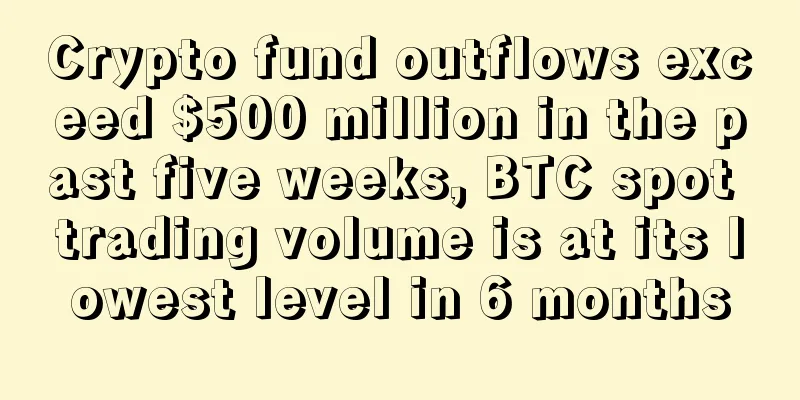|
After Bitcoin China, OKCoin, and Huobi announced their closures, BitTimes released a closure announcement at noon today: In other words, the announcement from Bit Era means: starting tomorrow, there will no longer be any Bitcoin trading platforms in China.
It is really sad to see an era coming to an end. Today, Laowu will take you to review the history of Bitcoin and look forward to its future. I hope you can remember Bitcoin, which once brought us wealth and freedom, and brought us laughter and tears.
So, let's get started.
1 Bitcoin: Origin <br/>How did Bitcoin become popular? It all started with the 2008 financial crisis.
After the global economic crisis that year, the United States implemented a quantitative easing monetary policy, continuously injecting large amounts of money into the market to stimulate economic development. This led to a sharp depreciation of the US dollar, followed by major central banks around the world also flooding the market with money, further exacerbating currency depreciation. Gradually, people began to have deep doubts about the government's monopoly on currency issuance and currency credit.
Against this background, in 2009, Satoshi Nakamoto proposed the blockchain white paper, and Bitcoin came into being. The real identity of "Satoshi Nakamoto" has not been confirmed. As the world's first virtual currency, Bitcoin has the following characteristics: anonymity, decentralization, immutability, non-traceability, and cross-border mobility. In addition, according to Satoshi Nakamoto's open source settings, the total amount of Bitcoin is limited (only 21 million), and the output is slowing down, with the output halved every four years.
These unique advantages have hit the G-spot of investment enthusiasts around the world, and Bitcoin has therefore gained a large number of fans, and later even a large number of "Bitcoin believers" were born. Believers firmly believe in the value of Bitcoin and use practical actions to promote Bitcoin around the world. The popularity of Bitcoin is increasing, and there is even an argument that "stock speculation and real estate speculation are not as good as cryptocurrency speculation."
Of course, the price of the currency is indeed "competitive". In just 8 years, the price of Bitcoin has increased three million times, and finally hit a record high of 40,900 yuan per coin. In less than a year this year alone, its price has skyrocketed 7.27 times. At present, the total market value of Bitcoin is close to 102.1 billion US dollars, which has occupied half of the cryptocurrency market. 2 Bitcoin under “heavy pressure” <br/>Let’s talk about China first. China’s regulatory attitude towards Bitcoin can be roughly divided into four stages: recognizing commodity attributes, interviewing trading platforms, banning ICOs, and closing trading platforms.
On December 5, 2013, the People’s Bank of China and five other ministries issued the “Notice on Preventing Bitcoin Risks,” which clarified the “commodity” attributes of Bitcoin.
On January 6, 2017, the People's Bank of China summoned three Bitcoin exchanges - Huobi, OKCoin and BTC China, and asked them to conduct self-inspections on the abnormal Bitcoin prices and carry out corresponding cleanups.
On September 4, 2017, the People's Bank of China and seven other ministries jointly issued the "Announcement on Preventing the Risks of Token Issuance and Financing", calling a halt to trading platforms that support token issuance and financing activities (ICO).
On September 15, 2017, Beijing regulators announced the closure of Bitcoin and other virtual currency exchanges. After that, all domestic digital currency exchanges proactively stopped the RMB recharge channels, and most of them stopped all domestic operations at the end of September.
On October 30, 2017, BTCChina, Huobi.com, and OKCoin all issued notices of liquidation. At noon that day, BTCChina stopped all trading operations. You all know what happened after that.
At this point, all domestic Bitcoin trading platforms have been closed. Internationally, the regulatory storm set off by my country has also affected the United States and Switzerland, but no regulatory documents have been issued by these two countries. The attitudes of Russia and Thailand have gone from strict prohibition to gradual relaxation, while Singapore, the United Kingdom, and Australia still maintain a friendly attitude towards Bitcoin.
Japan, a loyal fan of Bitcoin, still supports Bitcoin unconditionally. Currently, the Japanese yen Bitcoin trading volume accounts for 61.54% of the global market, far exceeding the second and third ranked US dollar and Korean won. The RMB trading volume, which once firmly occupied the throne of the big brother, has fallen to fifth place, even behind the euro. 3 The world <br/>According to the statistics of domestic Bitcoin trading platforms, the balance of customer funds on a certain platform once reached tens of billions of RMB, with more than one million investors. Of course, some people made a lot of money, while others lost everything.
According to the Beijing News, Bitcoin plummeted 20% on September 8. At that time, a trader with the pseudonym "Wei Chen" bought 5 bitcoins on a domestic trading platform, withdrew them to a Bitcoin e-wallet, and then used a VPN to cash out at an exchange in the United States. According to his own description, "I bought and sold and made 20,000 yuan in half an hour. It was great."
Of course, there are also investors who lose more money the more they speculate. When the price of the currency plummeted, some people chose to sell at a loss, and later "bottom-fished" again. After several operations, they have lost more than 90,000 yuan. Bitcoin price chart in September, from BitTimes
Before September, the Bitcoin and ICO markets were booming, with many people cashing out large amounts of money from credit cards, taking out consumer loans from banks, and selling their homes to speculate in Bitcoin.
An investor who did not want to be named said that he sold one of his multiple homes and used millions of yuan to buy Bitcoin at a low price of around 7,000 yuan. He made 20 million yuan in August and cleared his position at around 29,000 yuan. However, an investor who sold his house for 1.5 million yuan in July to buy Bitcoin, Litecoin and Ethereum at a low price once lost more than 300,000 yuan.
4. Blockchain is hot
On December 15, 2016, the State Council issued the "13th Five-Year National Informatization Plan" after being signed and approved by Premier Li Keqiang, in which blockchain technology was included in the "National Informatization Plan" for the first time.
On September 5, 2017, the Chinese government’s official website published a document titled “my country’s Blockchain Industry is Expected to Be at the Forefront of the World,” publicly supporting the development of blockchain technology. The introduction of a series of national policies is enough to reflect the importance our country attaches to blockchain technology.
Some people may wonder: If the Bitcoin trading platform is shut down, will the blockchain technology suffer? The answer is no. To quote Yang Dong, director of the Financial Technology and Internet Security Research Center of Renmin University of China, "We must realize that shutting down virtual currency exchanges and prohibiting Bitcoin platform transactions does not conflict with the current vigorous development of blockchain!"
The implication is: Bitcoin trading platforms should be shut down, but blockchain technology should still be strongly supported and developed.
Of course, it is not just the government that loves blockchain technology. According to the "White Paper on the Development of China's Blockchain Industry" released by Wuzhen Think Tank at the 2017 Global Blockchain Finance (Hangzhou) Summit, since 2012, the number of companies engaged in blockchain innovation has grown rapidly at a rate of more than 65.2%; in 2016 alone, the blockchain field completed 140 financings with a total financing amount of more than US$450 million. These include government agencies, financial companies, Internet companies, IT companies and manufacturing companies.
It is worth mentioning that in 2016 alone, the number of Chinese companies involved in blockchain entrepreneurship increased by 17, making China replace the United States as the country with the largest number of new blockchain companies in the world.
Blockchain is increasingly reshaping the fields of finance, data security, supply chain management, etc. with its advantages of decentralization, trustlessness, distributed storage, and collective maintenance. In the future, it is bound to be widely used in many fields, such as energy Internet, medical care, social networking, copyright protection, etc.
5 Is Bitcoin Over? Maybe Not
Although blockchain technology is developing rapidly in China, the fact that RMB-denominated transaction volume has lost its former dominant position internationally confirms a conclusion for us: Bitcoin’s glorious era in China has ended!
Is Bitcoin over? Perhaps not. Historical experience shows that the end of one era is often the beginning of another. Objectively speaking, Bitcoin is a product of the global economic crisis, and its development is closely related to the economic development of the environment. Under the situation of stable economy in China, virtual currencies such as Bitcoin have obviously lost the nutrient solution for survival, and the closure of domestic Bitcoin trading platforms has also made it lose its carrier of existence. However, this does not mean that Bitcoin will not exist and develop in other countries. As for Japan, its banking system on the verge of collapse may be more suitable for the access of Bitcoin.
An obvious example: Recently, Japan's SBI Holdings and London-based crypto payment company Wirex announced a partnership to provide Bitcoin and digital currency payment cards to Japanese customers. You know the underlying reasons.
In addition, in countries such as Zimbabwe and Venezuela, where economic collapse is getting worse, Bitcoin, as a financial derivative, is used by local people to cope with hyperinflation.
Is Bitcoin a demon or a god? Some say it is a demon, a bubble that will disappear in the future. Some say Bitcoin is a god because it has led to the myth of getting rich overnight and helped many people realize their dreams of wealth.
There is no doubt that Bitcoin's underlying blockchain technology has opened a window to the future. As for how Bitcoin will develop tomorrow, let's wait and see and comment. |










